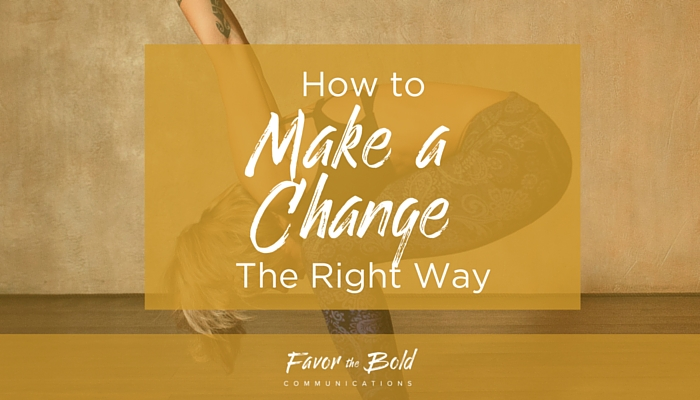Oh man, I really f---ed up. And I knew it. I knew even when I was doing it that it was a bad idea. I had gotten myself in way over my head and there was no getting out of it. I had to see it through.
The thing about starting anything new is that there’s a big learning curve. You have no idea what you’re doing, so everything you do is trial and error. The thing about starting a new business is that those errors can cost you.
But that doesn't mean you shouldn't make them.
1. The cost of making mistakes
Let me tell you about one of my bigger mistakes in my first year of business.
One of my clients needed a service that I don't offer. Since business is based on giving the client what they need, I had the bright idea to subcontract the work to someone I knew. It was gonna be great: the client gets what they want, my friend gets extra business, I get a happy client. Everybody wins, right?
Only I had never subcontracted before. I didn’t realize I needed management fees or contracts, and I didn’t even fully understand the service I was now offering my client. I went into the project thinking, "I'll just figure it out."
And I ended up paying for it.
I paid in money, since I charged my client the exact cost that the subcontractor quoted and had to pay the bank fees out of my own pocket.
I paid in time, because I spent at least 5 hours of my time managing the project and didn’t charge anything for it.
And I paid in reputation, because I didn’t understand the project and looked like a total amateur.
By the time I finally finished that damn project, I was pissed. I was livid with myself for going into it so unprepared and uninformed. I was kicking myself for being so stupid, for making a costly mistake, for getting in over my head on something I knew nothing about. I even started questioning if I have what it takes to run my own business.
2. Make it an investment, not a cost
But then the former CEO of IBM saved me.
No, no, I don't have a new angel investor. At least not yet. But I heard a story about the guy that stopped my self-flagellation in its tracks.
You see, as the story goes, a young executive at IBM had made a mistake that cost the company millions of dollars. He was asked to come to the CEO’s office and assumed he was summoned there to be fired. He entered the office and said to the CEO, “I know I made a huge mistake that cost the company millions, and I don’t blame you for firing me.” The CEO looked at him and responded, “Why would I fire you? I just spent millions of dollars educating you.”
That story (which, let’s be honest, is probably pure fiction, seeing as it comes from the internet) got me thinking about my own mistake. How much had my mistake cost me? And how much had I learned from it?
When I started looking at it that way, my clumsy attempt at subcontracting seemed less like an idiot amateur move that cost me time and money, and more like an investment in my business education. Yes, that lesson had cost me $500, but I had learned a ton that I could use in future projects. Plus, with what I had learned about subcontracting, I’d most likely be able to recoup that amount by doing it the right way next time.
If you’re rolling your eyes at my positive psychology BS, I get it. Maybe not every mistake can be whitewashed into a “great learning experience.” But I’d argue that most should be.
3. Mistakes help you learn
Not many mistakes are fatal. Very few failures are permanent. And if I’m really honest, I’d even go as far as to say if you aren’t making any mistakes, you probably aren’t pushing yourself hard enough.
It’s like the skier who stays on the beginner bunny slope all day just so he can say that he didn’t fall. Sure, you didn’t fall, but are you getting any better? Are you learning anything new?
Sure, you're less likely to make mistakes if you spend every day in your comfort zone and never take any risks. But is that really a way to live? Happily skiing the bunny slope for the rest of your life so you can say you didn’t fall?
After I lost money on that subcontracting project, I was sorely tempted to say, “Never again.” I wanted to swear off subcontracting forever and just stick to the parts of business I felt comfortable with.
But, like the IBM CEO, I realized that the best way to make sure that $500 was permanently lost was to not use the knowledge I gained from my mistake. If I never subcontracted again, the $500 was a cost. If I subcontracted again with the lessons I had learned, it was an investment.
I’m not a math person, but even a Communications major can figure out that an investment is better than a cost.
Because messing up is part of the learning curve. Failure is a stepping stone to success.
If you’re not making mistakes, you probably aren't challenging yourself enough.
So what mistake have you made recently? Can you resist the urge to retreat into embarrassment and self-loathing, and instead use what you've learned to do better next time?
Because you only have two options. Either you take risks, make mistakes and use failure to learn and grow.
Or you play it safe on the bunny slope, day after day, because you're afraid to fall.











